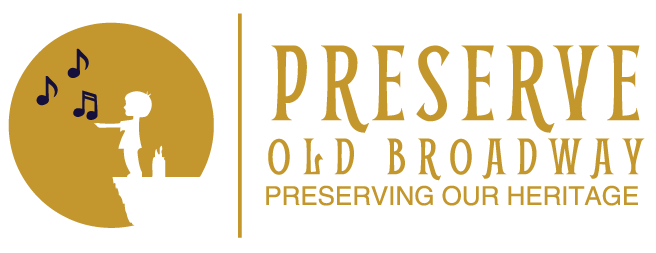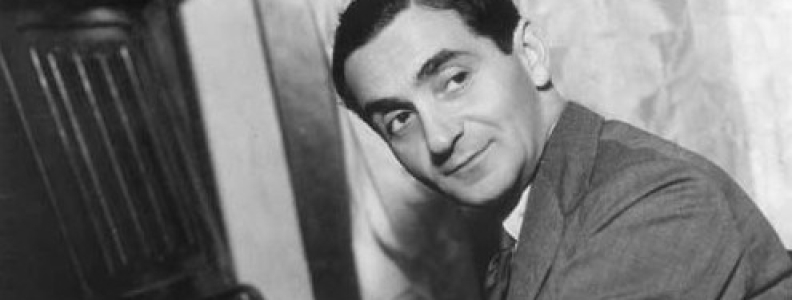Progression of Lyricists and Librettists
So far, we have concentrated on the musical side of the collaboration. We need to address the lyricist and librettist, as well. Irving Berlin and Cole Porter wrote their own lyrics, so we have much greater insight into their philosophies on life than we have with other composers. Berlin immigrated to America from Russia when he was still a very young man (five years old) and came up the economic ladder the hard way. Porter came from Indiana, with great wealth, went to Yale and enjoyed the good life. Yet in America, both men became great successes and good friends.
Berlin wrote about universal human emotions (highs and lows) from the standpoint of the common man but with an excellent command of the English language and its subtleties. Think of the lyrics to the song “How Deep Is the Ocean?” and compare them to the rollicking “See You in C-U-B-A.”
Porter wrote from the standpoint of the sophisticated elite but with a roguish sense of humor that permitted him to laugh at himself (and his “class”), while also laughing at others in order to reach a wider audience. Porter was not alone. One has only to read aloud certain passages from the “Hamlet Soliloquy” in Mark Twain’s novel, The Adventures of Huckleberry Finn, in order to understand how the skillful use of disparate quotes from Shakespeare can produce howls of laughter from an audience who knows the true origin of each quote.
Porter chose a more delicate path than did Twain. The phrase “tongue-in-cheek” is meant to convey a technique that can be used by a speaker or writer whose intent is to say one thing and mean another. This form of humor depends on the audience’s ability to understand the double meaning and choose the humorous interpretation. Porter’s education provided him with any number of allusions that he could fit into plot twists in his shows. At the same time, his ability to put the “correct” words into the “wrong” mouth also provided him with a second layer of humor, one that built on the first layer but turned a chuckle into a guffaw. One could say that he had a tongue planted firmly in “both cheeks.”
We experience the awesome effect of Porter’s ability when we listen to the out-of-context, sophisticated lyrics he gave to the two Runyonesque gangsters in “Brush Up Your Shakespeare” from Kiss Me Kate (1948.32). On the most basic level, we admire the lyrics themselves and the intricate rhymes; at the next level, we howl at the idea that two hitmen would understand the significance of “Aeschylus and Euripides.” While we ponder how Damon Runyon missed this nugget, we also suddenly realize that, at its highest level, Porter is revealing something significant about the universal nature of art.
In this show, Porter could use broad humor but then lay, by its side, the heart-wrenching lyrics found in the song “So in Love.” The lyrics remind us of the range of emotional love that Porter could convey, such as that found in the lyrics of “What Is This Thing Called Love” from the Porter revue Wake Up and Dream (1929.51)
Larry Hart may have been Porter’s equal in terms of pure wit, but Alan J. Lerner could be both witty and serious, a hard feat to achieve with any regularity, as Lerner was to discover after writing the libretto for Brigadoon (1947.07).
Otto Harbach could write good lyrics, but he would sometimes revert to phrases that were strained and antiquated, as he did in the Jerome Kern show, Roberta (1933.26). Yet, he had a heart as big as the Atlantic and Pacific oceans combined. He helped Oscar Hammerstein II learn the art of lyric and libretto writing and Hammerstein acknowledged this in his book on Lyrics:
“It is almost unbelievable that a man with his record of achievement received so little recognition. I feel this, perhaps, more than anyone because I know so well his unusual attainments as an artist, and because I am so indebted to him. *** Much more important were the things he taught me about writing for the theater. Otto is the best play analyst I have ever met. He is also a patient man and a born teacher. Like most young writers, I had a great eagerness to get words down on paper. He taught me to think a long time before actually writing. He taught me most of the precepts I have already stated in these notes. He taught me never to stop work on anything if you can think of one small improvement to make. To speak of his nonprofessional qualities as a civilized human being is completely irrelevant to these notes. Please, nevertheless, let me record that he is the kindest, most tolerant and wisest man I have ever met.”

